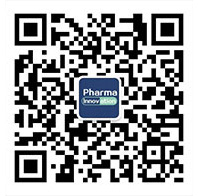The US Food and Drug Administration (FDA) has approved the first vaccine for the prevention of Ebola caused by the deadly Zaire strain of the virus, which killed more than 11,000 people during the 2014 West Africa outbreak and is behind more than 2200 deaths in the current outbreak in the eastern Democratic Republic of the Congo (DRC).
The vaccine called Ervebo from Merck & Co is for individuals 18 and older. It is administered as a single-dose injection, and is a live, attenuated vaccine that has been genetically engineered to contain a protein from the Zaire ebolavirus.
Cases of Ebola virus disease are rare in the United States and those that have occurred have been the result of infections acquired by people in other countries who traveled to the United States or by healthcare workers who became ill after treating infected patients.
Ebola "knows no borders. Vaccination is essential to help prevent outbreaks and to stop the Ebola virus from spreading when outbreaks do occur," Peter Marks, MD, PhD, director of the FDA's Center for Biologics Evaluation and Research, said in a statement.
"The FDA's approval of Ervebo is a major advance in helping to protect against the Zaire ebolavirus as well as advancing US government preparedness efforts," said Marks.
Alex Azar, secretary, US Department of Health & Human Services (HHS), called the first-ever FDA approval of a vaccine against Ebola a "triumph of American global health leadership."
A "Milestone" In Preparedness and Prevention Efforts
The Ervebo vaccine was tested in Guinea during the 2014-2016 outbreak in adults 18 years and older. A total of 3537 contacts, and contacts of contacts, of people with laboratory-confirmed Ebola virus disease (EVD) received either immediate or 21-day delayed vaccination with Ervebo.
In comparing cases of EVD among 2108 individuals in the immediate vaccination arm and 1429 individuals in the delayed vaccination arm, Ervebo was found to be 100% effective in preventing Ebola cases with symptom onset greater than 10 days after vaccination.
No cases of EVD with symptom onset greater than 10 days after vaccination were observed in the immediate cluster group, compared with 10 cases of EVD in the 21-day delayed cluster group.
The safety of Ervebo was assessed in roughly 15,000 individuals in Africa, Europe, and North America. The most common side effects were pain, swelling, and redness at the injection site, as well as headache, fever, joint and muscle aches, and fatigue.
The FDA granted priority review and breakthrough therapy designations for Ervebo.
The vaccine was approved by the European Commission in November, following a positive opinion by the European Medicines Agency Committee for Medicinal Products for Human Use in October, as reported by Medscape Medical News.
"Having an Ebola vaccine approved by the FDA is a significant milestone in Ebola preparedness and prevention efforts," Rick Bright, PhD, deputy assistant secretary for preparedness and response and director of the Biomedical Advanced Research and Development Authority (BARDA), said in a statement from Merck.
"At BARDA, we are tremendously proud to have been a part of this unprecedented collaboration between private and public sectors in multiple countries that has led to this important moment in public health history," said Bright.
Merck is working to start manufacturing of licensed doses of Ervebo and expects these doses to start becoming available in the third quarter of 2020.
During this transition period, Merck is continuing to work closely with partners to ensure uninterrupted access to the investigational Ebola Zaire vaccine (V920) in support of ongoing international response efforts in the DRC and neighboring countries.
To date, the company has shipped more than 275,000 doses of the investigational V920 vaccine based on requests by the World Health Organization.

